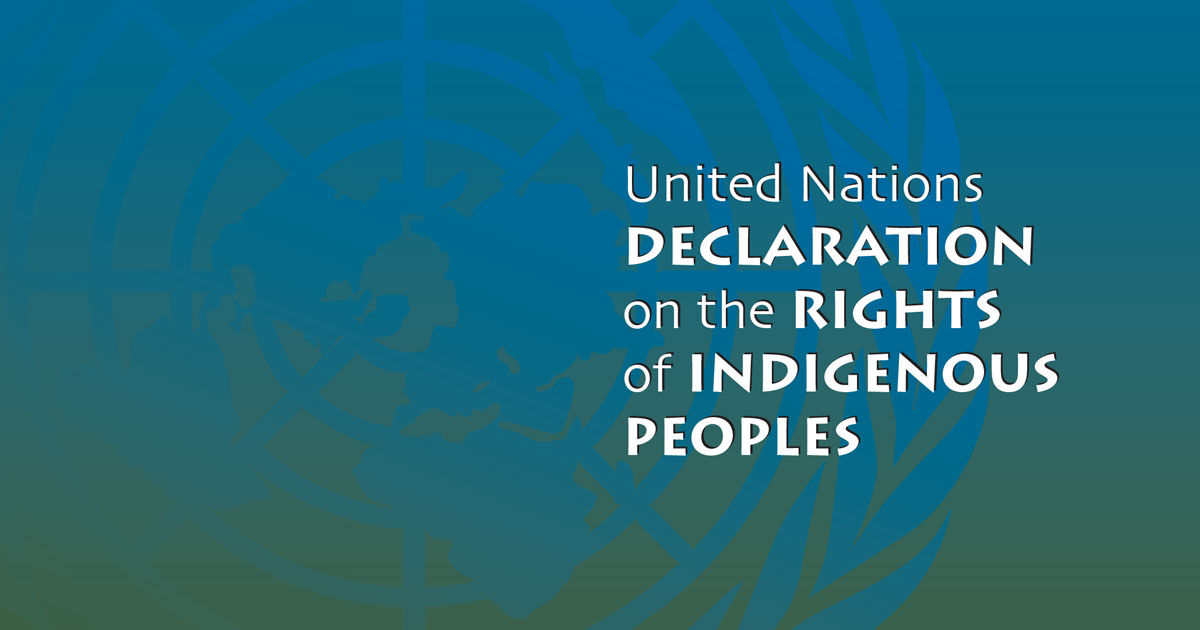Archbishop and Primate Fred Hiltz has written to Prime Minister Justin Trudeau in support of a bill that would require all Canadian laws to be in harmony with the United Nations Declaration on the Rights of Indigenous Peoples (UNDRIP).
In the letter, Archbishop Hiltz expressed his support for Bill C-262 on behalf of the Anglican Church of Canada.
“As parties to the Indian Residential Schools Settlement Agreement,” the Primate wrote, “I believe we have a common obligation to ensure that genuine reconciliation in Canada becomes a reality. The Truth and Reconciliation Commission of Canada has stated that the UNDRIP is the key to this reconciliation.”
Outlining the efforts of the church to respond to the Calls to Action of the Truth and Reconciliation Commission (TRC), the Primate referred to his statement “Let our ‘yes’ be yes” in response to Call to Action No. 48, in which he asked that UNDRIP be read in parishes annually on the Sunday before National Aboriginal Day, and incorporated into baptism and confirmation ceremonies. The statement also established a council of Indigenous elders and youth—now known as the Vision Keepers Council—to monitor how the Anglican Church would honor its commitment to adopt and comply with UNDRIP.
Archbishop Hiltz said that the passage of Bill C-262 would encourage the Government of Canada to live into a response to Calls to Action 43 and 44, which call on all levels of government to fully adopt and implement UNDRIP as their framework for reconciliation, and for the federal government to take concrete steps to achieve the goals of the UN Declaration.
“Trying to move the laws of Canada in harmony with the UN Declaration … I recognize that’s a huge undertaking, and it could take a very long time,” the Primate said. “But we have to begin somewhere and we have to begin sometime, and I think this could be the beginning of that.”
National Indigenous Anglican Bishop Mark MacDonald applauded the support of the Anglican Church of Canada for Bill C-262.
“We as a church have committed ourselves in a number of ways to the UN Declaration on the Rights of Indigenous People, both in terms of guiding our own behaviour and action, but also as a standard for our nation,” Bishop MacDonald said. “So I think it’s very appropriate that we endorse this bill.”
“If our laws were brought into harmony with the UN Declaration,” he added, “we would be well on our way to a full-hearted experience of reconciliation.”
Reconciliation animator Melanie Delva said that the Primate’s letter reflected the official endorsement of the UN Declaration by General Synod in 2010, in a resolution that also called on the church to urge governments to do the same.
“If we as a society want reconciliation as we say we do, then the UNDRIP needs to be more than simply aspirational,” Delva said.
She pointed to the Marks of Mission and their counsel for Anglicans to “transform unjust structures of society”, noting that Bill C-262 “most certainly calls our government to do that.”
“Reconciliation, at the very least, requires the survival, dignity, and well-being of all people trying to reconcile,” Delva said. “This bill would see that factors such as inter-generational trauma, Indigenous health, and poverty—among other issues—get the serious attention they deserve. It would also allow for traditional forms of governance, which are critical to self-determination.”
The same issues, she noted, also apply within the church.
“How can we say we as the Body of Christ are whole when part of our body is suffering to this degree?” she asked. “The church needs to be a leader in Indigenous justice in order to seek the healing of the whole body of Christ.”
Anglicans can express their support for Bill C-262 by contacting their MPs—by phone, in person, or in writing—and requesting that they publicly support and vote for the bill, as well as encouraging others to do the same.
Interested in keeping up-to-date on news, opinion, events and resources from the Anglican Church of Canada? Sign up for our email alerts .

